SRUC, Aberystwyth University, SAC Consulting and SAOS
In UK the MIXED project is implemented by SRUC, Aberystwyth University, SAC Consulting and SAOS in collaboration with two groups of farmers practicing Mixed Farming and Agroforestry Systems (MIFAS) in Scotland.
Agriculture in Scotland includes both specialized and mixed farming. Traditionally mixed systems include cereals, beef and sheep. In the most productive cropping areas very few farmers have livestock anymore.
East-West Cattle Grazing Project – a network of farmers trialing the out wintering of breeding cattle
Aim: To evidence the financial and environmental value of moving breeding cattle to lower cost natural resources.
Objective: Trialing movements of breeding cattle from east to west for summer/backend grazing and movements of breeding cattle from west to east for out wintering on forage crops.
This project was developed in 2018 during a severe fodder and forage crisis for Scotland livestock farmers. The reasoning for these farms joining the project could be due to a fodder shortage, but also due to a need to free up time at home, a change in management practice, economic benefit and/ or an expansion.Trials were conducted where cattle are on cereal stubbl with access to straw and silage – as well as cattle on forage crops and silage.
Trials concluded over the 2019/20 winter for the project, but all projects have carried on themselves in some shape or form for 2020/21 winter.
The grazing winter cereals with sheep network started following the dry summer of 2018, which resulted in a forage shortage on a mixed farm in Perthshire. Under pressure from the lack of grass growth, one farmer asked the question: what happens if I graze my cereal crops? This led to SAC consulting forming a group of like-minded growers who all wanted to explore this idea further. Funding was provided under the Rural Innovation Support Service and on farm trials ensued. Now, three years later the initial group are advocates for this method of crop management, which allows crop sowing earlier in the season protecting soil structure. Additionally, disease management and even the signs of a yields uplift have been observed. This group is working with SRUC/SAC Consulting to develop and carry out replicated trials to provide scientific evidence for what appears to be a promising way to integrate livestock on to arable farms.
Morayshire Trial Video: https://youtu.be/jLzRvdQo3Xg
Lothians Trial Video: https://vimeo.com/430335825/798ba1df1a
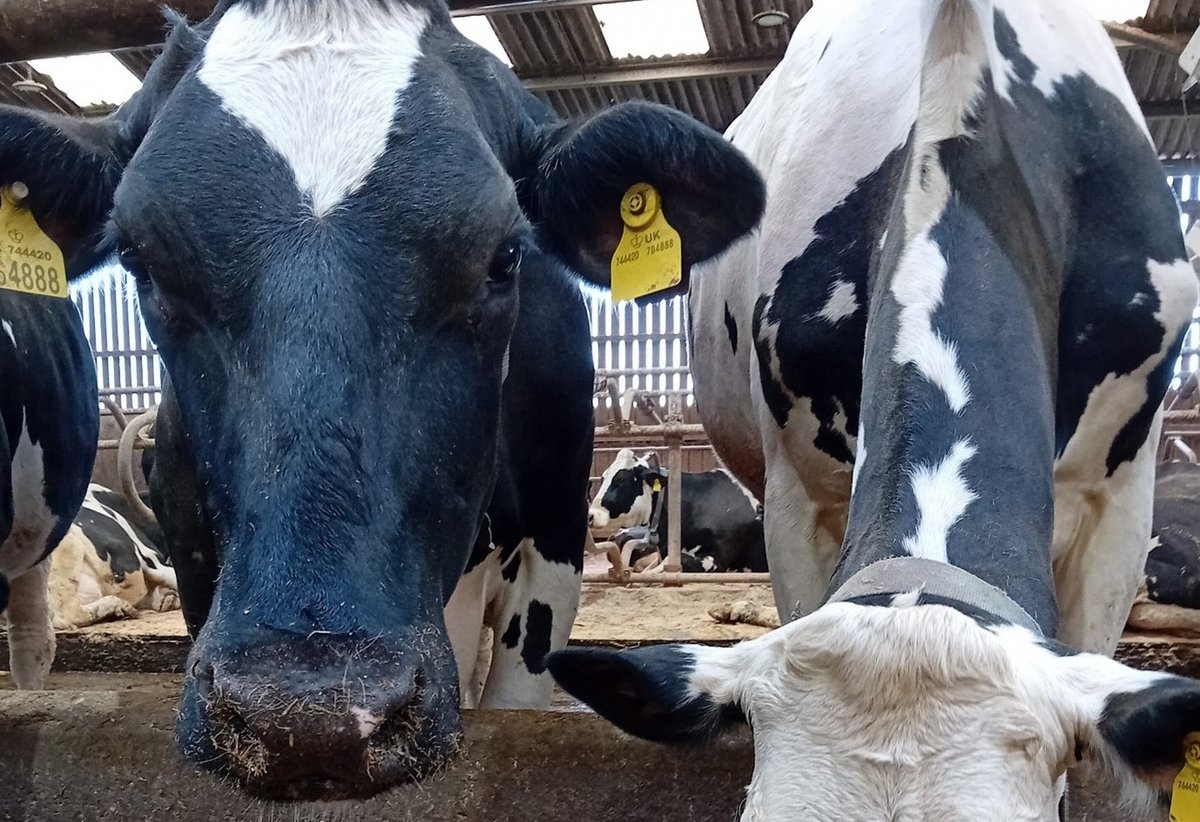
Aberystwyth University’s Trawscoed Farm will be hosting the Royal Welsh Agricultural Society’s Sustainable Muck and Grassland Event on Thursday 30th of May 2024.
This is an annual event which this year will showcase Trawscoed farm and the research, dissemination and teaching activities taking place there. The 2024 Sustainable Grass and Muck event will also host several industry leaders, organisations and companies from all sectors making it a must visit for anybody interested in the future of farming.
Behind the Trawscoed farm
Trawscoed farm is a 400 ha consisting of level valley bottom land at 30 meters above sea level rising to upland grazing at 300 meters above sea level. It also has 100 ha of managed woodlands comprising native trees and conifers.
The farm consists of both livestock and arable enterprises. 350 cow dairy herd is milked through 5 Delaval VMS 300 robots, which will be open for viewing on the day. 200 head of Dairy Youngstock are reared a grazed on the farm along with 200 head of Aberdeen Angus X beef cattle which are grazed at Trawscoed and finished on another University farm site.
A flock of 400 ewes consisting of pedigree Texel, Blueface Leicester, a flock of Beulah ewes are run to provide mule ewes for commercial lamb production.
More about the arable area
Five cuts of grass silage are taken from grass leys with red clover. The arable area is used to produce as much starch and protein as possible to feed the livestock. Peas and Spring Barley are grown at a ratio 70/30 and crimped for cattle diets to provide 16% protein feed.
Lupins are grown and have been successfully included in the beef cattle finishing diets eliminating bought in Soya. Winter Beans are grown for inclusion in the dairy cow Total Mixed Ration (TMR) diet with no detrimental effect on milk production when soya in the diet is reduced. The farm has been asked to remove Soya from cow diets by the milk purchaser so alternative protein source have to be identified. Hybrid Rye is grown for wholecrop to add to dairy cow diets. Winter Wheat, Winter Barley and Winter Oats are grown for inclusion in home mixed concentrate rations.
Team UK visited an organic hill sheep and beef farmer as part of he Aberystwyth University BSc undergraduate livestock module, and working in collaboration with the Woodland Trust to establish new hedgerows on his farm. The farm is at high altitude (for Wales) and is exposed to high winds and cold temperatures in the winter. The farmer has multiple reasons for increasing the hedgerows on the farm including: protection for grazing animals (sun, wind and rain), providing wildlife corridors between existing forestry plots on the farm, for climate change mitigation/carbon fixation and to provide new field boundaries to implement a rotational grazing system on the farm. The Woodland Trust works with the farmer to design appropriate hedge planting plans and also contributes in part to the cost – a win win for the farmer to achieve their goals for the family farming business.
Livestock Production students heard recently how the Woodland Trust Cymru through the MOREhedges Scheme are working with a local organic hill sheep and beef farmer in Wales to develop significant hedgerow planting on the farm. Increased hedgerow planting has been identified by the farmer as a key objective for the farm over the next few year to provide protection for grazing animals from sun and cold wind/rain, to provide wildlife corridors between existing forestry areas, as climate change mitigation and to subdivide fields to introduce a rotational grazing strategy on the farm.The Woodland trust are working with the farmer to design a planting strategy to meet these varied needs and also contributing to some of the cost – a win win for the farmer
Find out more: Plant Hedges on Your Land with MOREhedges - Woodland Trust
The UK team chose to use an existing event attended by relevant stakeholders to disseminate MIXED findings at the national level. SAOS kindly offered th UK team an opportunity to present their findings in poster format at their annual conference entitled “Managing Risk, Building Resilience, Reaping Rewards”. The agenda for the meeting can be found in the picture below. The MIXED team were able to interact with conference attendees before the official agenda commenced and during coffee and lunch breaks. Three posters were prepared in advance of the meeting (picture 2) to initiate discussions with the UK MIXED team in attendance (Fergus Younger (SAOS), Kairsty Topp (SRUC), Pip Nicholas-Davies (Aberystwyth University) (picture 3).
The posters presented and discussed at this meeting focussed on three specific areas of research from MIXED:
Winter grazing of cereals by sheep – results of the field trials conducted by SRUC as part of work package 2.
The outcomes of the Scottish farmer network activities conducted as part of work package 1.
The methodology used in work package 2 and how it could be developed to result in better participatory learning activity for farmer networks.
These three areas were focussed on as they follow an evolutionary pathway of mixed farming development within MIXED in the Scottish context.
The field trials conducted at SRUC in work package 2 clearly showed that from a technical perspective, grazing winter cereals with sheep significant benefits were achievable. Discussions with participants recognised the carbon benefits of utilising a currently un-utilised feed resource but many were interested in how these types of collaborative mixed farming systems could work in practice (e.g. identifying and maintaining suitable collaborative arrangements.
The participatory trials with the network of farmers focussed on the practicalities of grazing a broader range of winter cover crops to generate crop, animal and environmental benefits. Technical challenges such as choice of crops species mix, germination/persistence and grazing time were identified and solutions proposed/conclusions drawn. Social issues such as arable farmers finding the collaboration more challenging than livestock farmers, especially when specific cover crops needed to be sown rather than simply grazing winter cereals, were highlighted.
The benefits and disadvantages of the reflective learning methodology were presented. Whilst within network knowledge development was successful, the ability for cross network sharing was limited in MIXED due to the diversity of mixed farming types and the geographic spread and project funding limiting physical interactions between networks. The Scottish and French networks were 2 of the few that experienced farmer exchange, albeit one way, and the benefits of that were significant for those involved. These lessons are important for the future use of this methodology in research projects.
Individual discussions with stakeholders at the conference focussed on how collaboration between specialised farmers might be facilitated (the network we worked with in MIXED is a good example of how it could be done) and the fact that climate does not appear to be high on the agenda in supply chains (apparent from presentations at the conference) and therefore, leveraging the market place to reward farmers for delivering environmental goods from mixed farming is currently not a viable option. Government support payments for the delivery of environmental goods could be an option but due to the long-term nature of the delivery of environmental goods from mixed farming, particularly through soil improvements, little data has been collected to evidence benefits. Despite this current lack of a framework to “reward” farmers for the delivery of environmental goods, it was recognised that from the evidence collected in the project, that there may be good financial justification for farmers to implement the likes of winter cereal grazing and with a bit more refining of optimum species mixes, other winter cover crop grazing as well. The carbon footprint benefits of grazing currently un-utilized feed sources alone (as highlighted in work package 5) may be a good incentive for farmers to implement winter cereal/cover crop grazing practices.
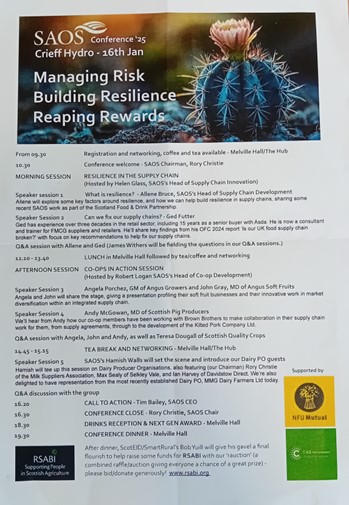
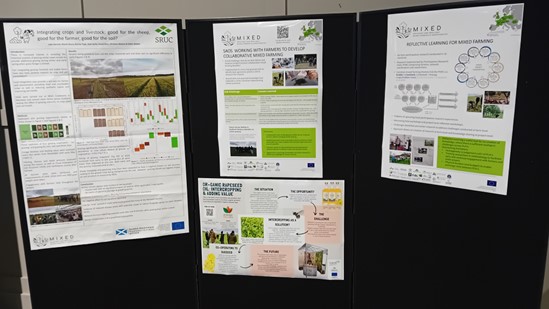
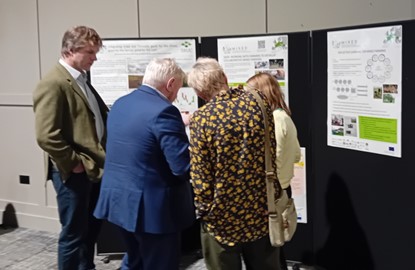
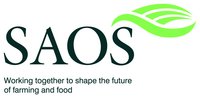
Network co-ordinator for "East-West Cattle Grazing"

Fergus Younger (SAOS)
Fergus.younger@saos.coop
Phone: 07771966649
Website

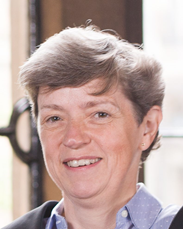
Christine Watson (SRUC)
Mail: Christine.watson@sruc.ac.uk
Phone: +44 (0) 1224 711143
Web: https://pure.sruc.ac.uk/en/persons/christine-watson

Kairsty Topp (SRUC)
Mail: kairsty.topp@sruc.ac.uk
Phone: +44 (0) 131 535 4026
Web: https://pure.sruc.ac.uk/en/persons/kairsty-topp
Network co-ordinator for "Sheep grazing winter cereals"
Zach Reilly (SAC Consulting)
zach.reilly@sac.co.uk
Twitter
Phone: 00 44 (0)1307 464 033
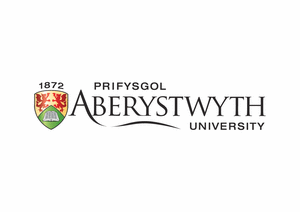
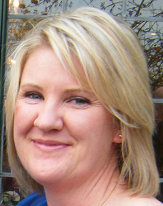
Pip Nicholas-Davies (Aberystwyth University)
pkn@aber.ac.uk
Phone: +44 (0) 1970 622240
Web:https://www.aber.ac.uk/en/contact-us/directory/staff/profile/pkn/
Simon Payne (Aberystwyth University)
smp14@aber.ac.uk
Phone: +44 (0) 1970 629629
Twitter

Simon Moakes (Aberystwyth University)
Mail: sim44@aber.ac.uk
Phone: +41 (0)62 865 04 15